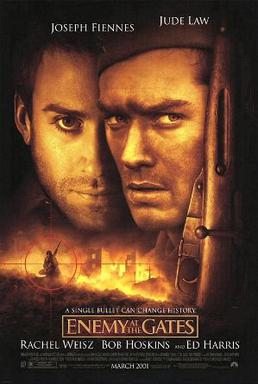 Introduction: Don’t mention the war!
Introduction: Don’t mention the war!
I’m sure many of those who see this are thinking, what? Another account of the Second World War? Why? Aren’t there more than enough of them around already? And my answer is yes, yes there are, and some truly exceptional ones. William L. Shirer’s
The Rise and Fall of the Third Reich, for example, or documentaries that tower above their fellows, such as
The Nazis: A Warning From History and of course, the titan among titans,
The World at War. But excellent as all these - and more - are in chronicling the events that changed the world from 1939 to 1945 (and indeed, before and after those dates) they do suffer from one small restriction.
Because of the very nature of books, TV documentaries or films, it’s virtually impossible to encompass an entire six-year global conflict into, at best, less than a thousand pages (usually a lot less) or thirty hours of television, as in the case of some of the multi-part documentaries, including those mentioned above. Time and space are factors which have to be considered, and so certain aspects of the war are either just glossed over, noted briefly or in some cases ignored altogether. Some books, or documentaries, focus on one viewpoint, phase or subject - a certain battle, strategy in general, famous figures, organisations like the SS and so on.

In this journal, which, like most of mine I envisage running for several years, I intend to attempt to write the most inclusive, comprehensive, complete and detailed history of the Second World War that I can. I’ll be looking into every facet, every part of the war, from the people who were responsible for prosecuting it to the people who fought in it, on both sides. I’ll of course be going deeply into the various battles and campaigns, looking at the machinery of war, the advancements in technology such as radar and directed bombing, tactics employed by either side (the Battle for the North Atlantic, for instance, which saw for the first time merchant shipping targeted as policy and allowed the killing of civilians, or the hyperbolic accounts of Nazi fighter pilots shooting at enemy airmen who had ejected - were those based in any sort of truth?) and of course the human cost of the war.
I intend, for instance, to spend about a month researching and writing about the Gestapo, similar study going into the various forms of resistance - mostly French and Polish, but I’m sure there were others - the shameful internment of Japanese-Americans and the tactics employed by the British SOE - Special Operations Executive - the spies who went behind enemy lines to gather intelligence and would and did do anything to prevent their capture. The main figures in the Third Reich will be explored in detail, but so too the ones in the Allied forces, and while history is written by the winners, I will be doing my best to keep a neutral tone, not siding with either combatant, though of course some things, like concentration camps, like Japanese torture of prisoners of war, will be about as black and white as it can get, and where something needs to be rightly condemned, I will not shirk from that.

And again you ask, sure, but why are you doing this? Well, I never write a journal, obviously, on any subject in which I am not interested - bar my ill-fated jazz journal, a step too far and a real mistake if ever there was one, and begun for very much the wrong reasons - so when I have a subject that I enjoy writing about, I tend to try to write about it. As a child, growing up, you had two choices in terms of comics - war or football. I mean, once you grew out of the funnies. There was, later on in my childhood, a slowly burgeoning trade in science fiction comics and of course there was always Marvel and DC, but in terms of “real” comics, it was football or war. I was never interested in football - not until about 1990 anyway - so for me the choice was clear.
In many ways, I was a child of the war. Not that I lived through it, but it was the war closest to home and closest in time to my youth. Vietnam began when I was about six I think, yet I recall almost nothing about it on Irish television - maybe because we were deeply mired in “The Troubles” and had no particular wish to see more war, even far from home - and the Korean War was, frankly, something we learned of through M*A*S*H, which I hated with a passion. Although Ireland was technically neutral during World War II, many Irishmen did join up to fight in the British Army or Air Force or Navy, and our own government made shady deals with high-ranking officials in the Nazi party, cleaving perhaps to the adage that the enemy of my enemy is my friend. This was, you must remember, less than twenty years since Ireland had become a Free State, and hatred against the English was still very much bubbling and simmering. If we could strike at the “old enemy”, we were ready to do so. Yes, we had equipped ourselves with the traditional long spoon in order to sup with him, but we had extended the invitation to the Devil, and to dinner he came. Possibly one understandable reason why some English still revile us.

Dublin port was offered as a haven for U-Boats, unofficially of course, though this did not stop the Luftwaffe bombing an area of Dublin known as the North Strand - rumours were that it was an accident, that the aircraft went off-course and the pilot thought they were over England; how true that is I don’t know - a site we could still visit when I was a boy, and so in ways the mark of World War II was on Ireland, and on my youth, in a way no other war could hope to be. When we played as kids, we didn’t play cowboys and Indians, but soldiers, wearing toy helmets like the Tommies and Germans from World War II and using replica toy firearms like the Bren and Sten sub-machine gun, Mauser and Luger pistol, and the Enfield rifle.
The films, too, that we could see at such a tender age were pretty much restricted to comedy, westerns and war movies, and so we learned more about the Second World War (albeit the sanitised, Hollywood version) than about any other conflict, and were more interested in it. We dressed our Action Men in RAF uniforms or as Nazi generals, put them in half-tracks or carrying radio packs on their backs, and acted out the war all over again in plastic. Through our comics, our movies, our television and our toys, World War II was our constant companion, and when I grew older, though I lost some interest in it as I became enmeshed in the excitement of science fiction and later fantasy, I never really forgot about it. It was almost like my first love, and in later life I have returned to it.

It is in fact enjoying quite a resurgence in popularity now, almost a renaissance, as one-sided films like
The Longest Day or
Patton: Blood and Guts are replaced by more balanced fare like
Saving Private Ryan, Downfall and
Enemy At the Gates. Of course, most narratives are still weighted heavily on the side of the-Germans-lost-we-won idea, but there is a growing desire, it seems, in Hollywood and on television, to not rewrite history, but to write it properly, to erase or at least blur the overly gung-ho productions of the previous century. With hard-hitting series like
Das Boot, World on Fire, Band of Brothers and so on, the aim has been to show that war is Hell, no matter what side you’re on, and the lines blur and the good guys can not always be relied upon to behave as good guys should, while occasionally the traditional bad guys might surprise you, might even seem to be (gasp) human.
So here the intention is to take my own personal love of and interest in the Second World War and the renewed global appetite for it and write what I hope will be, over time, the definitive account of a conflict that left over seventy million people dead, caused six million innocent Jews to be exterminated by a madman at the head of a fascist dictatorship, and in the end led to the decline of one empire and the rise of two global superpowers who have been slogging it out ever since.











 Threaded Mode
Threaded Mode